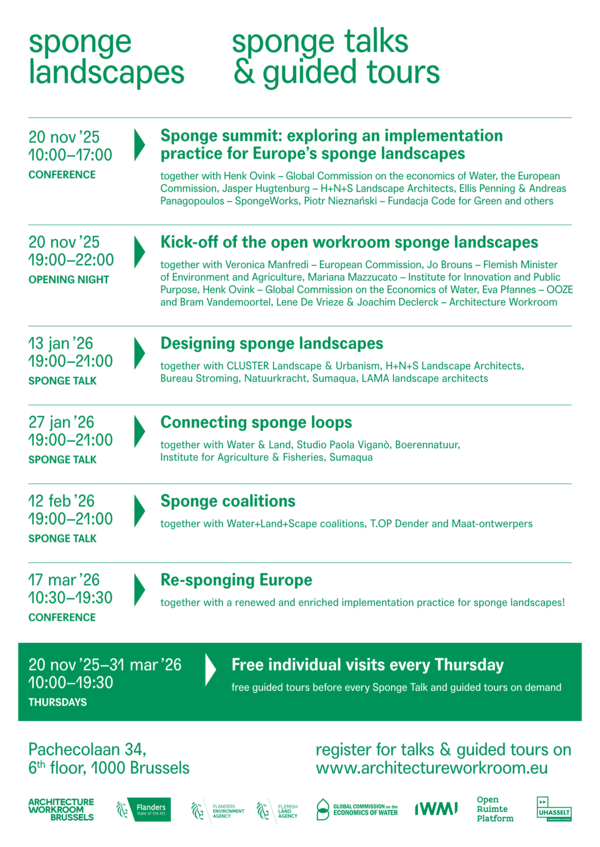There is a space that defines the future of food production, water security and biodiversity, and that can have a relevant impact in restoring the global water cycle and in tempering effects of climate change: the SPONGE LANDSCAPE. The 2nd edition of the open workroom brings together pioneering sponge work across Europe to collectively lay the foundation for a strong, empowered practice of implementing Sponge Landscapes!
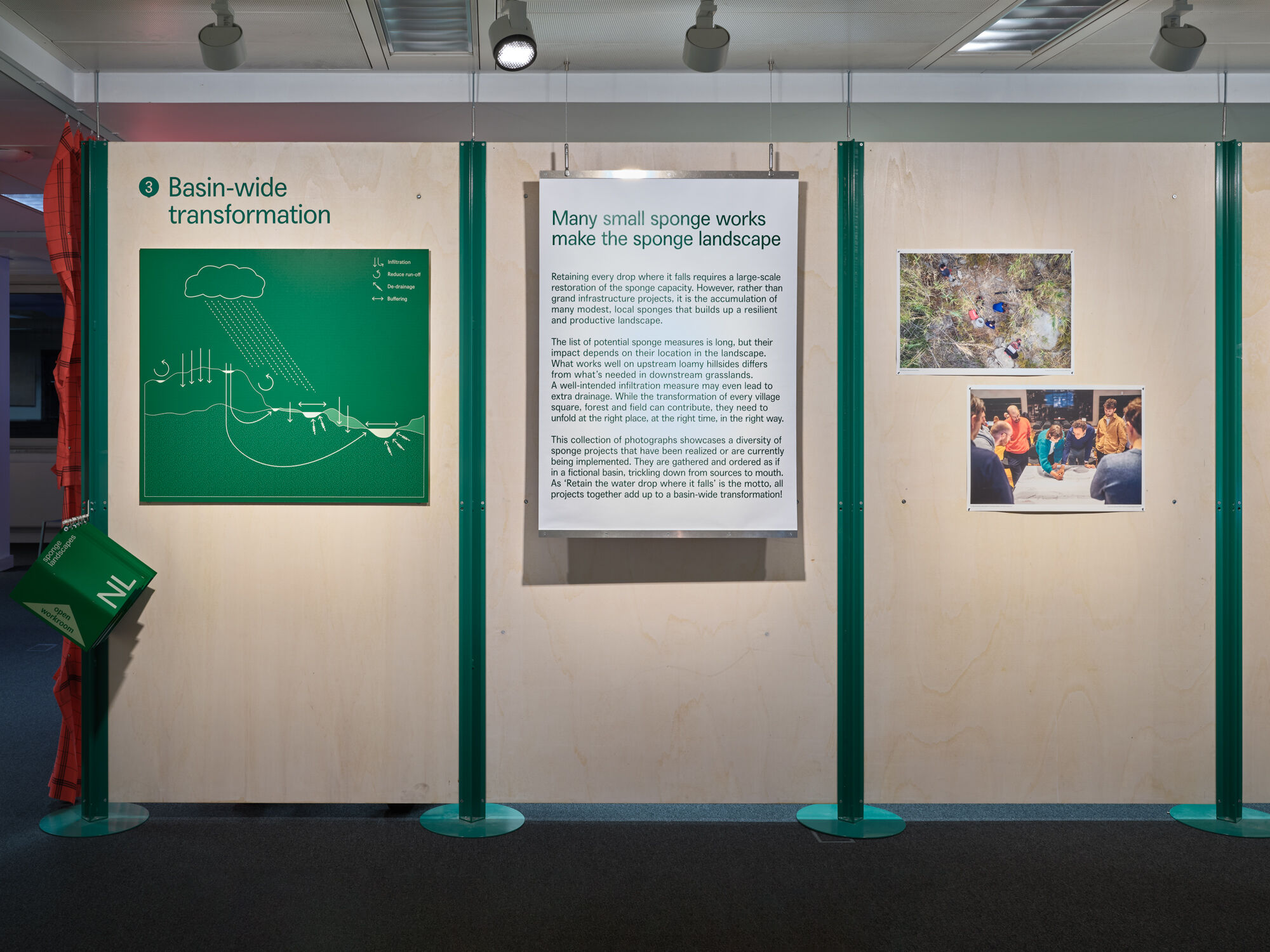
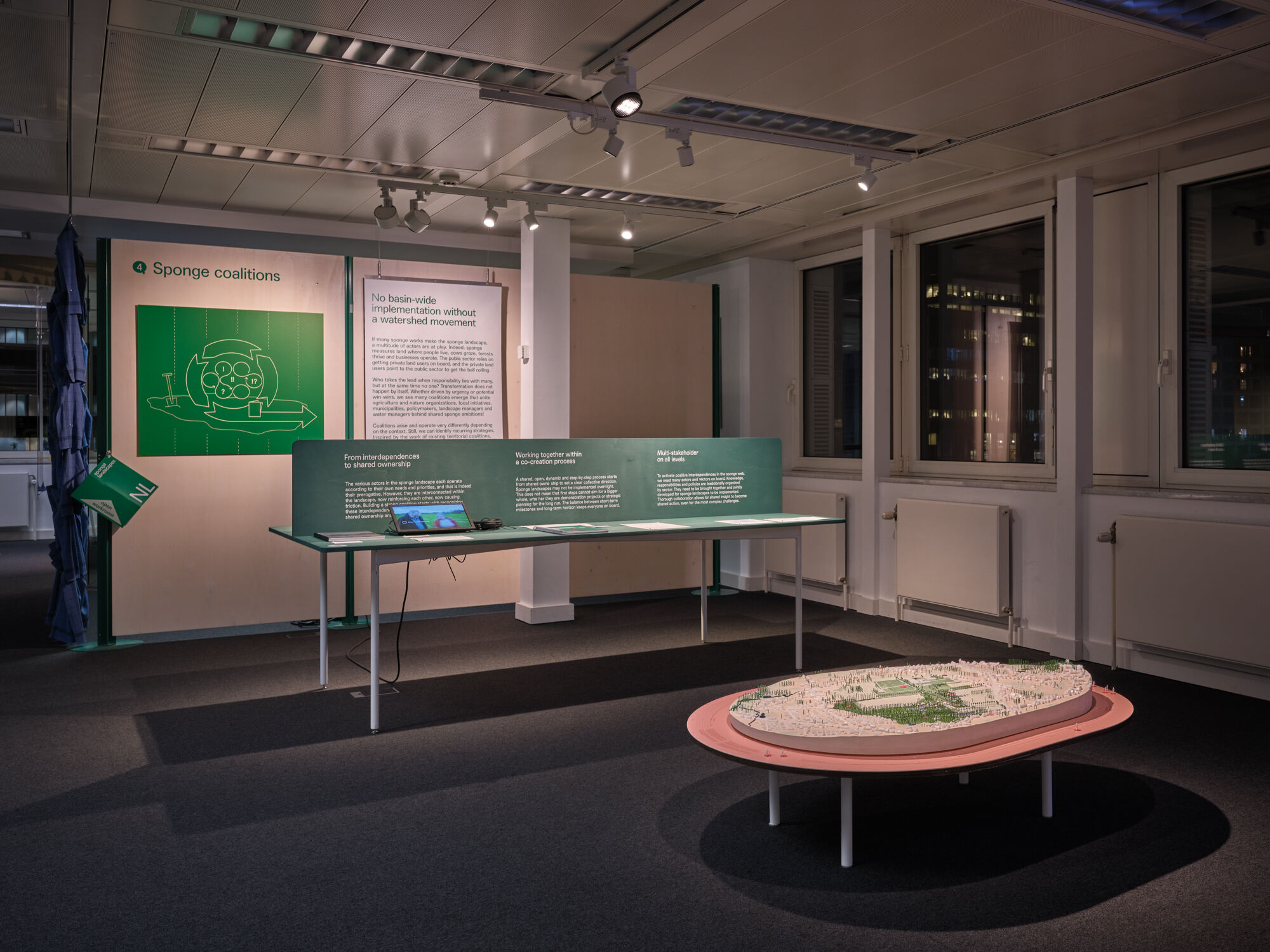
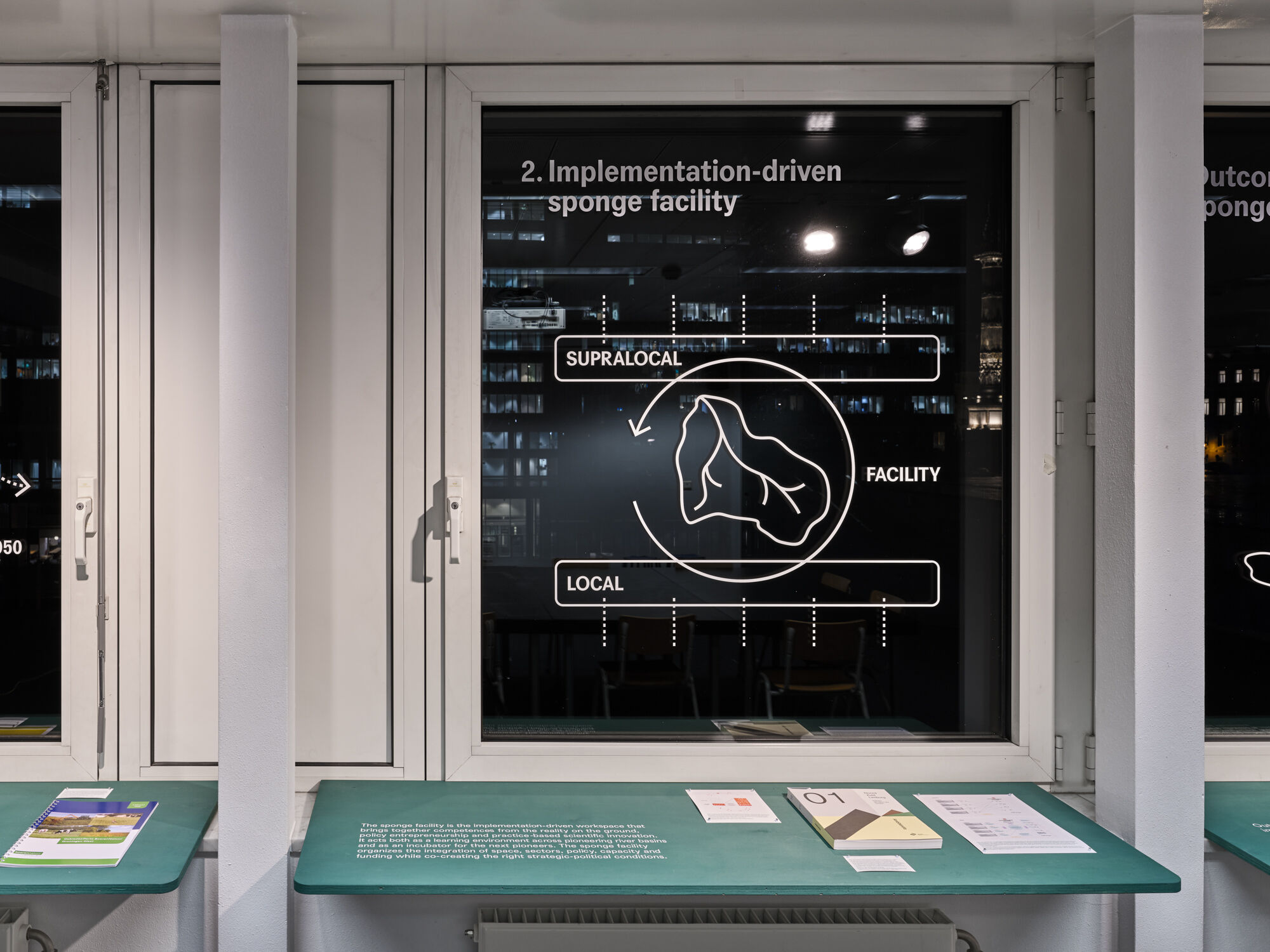
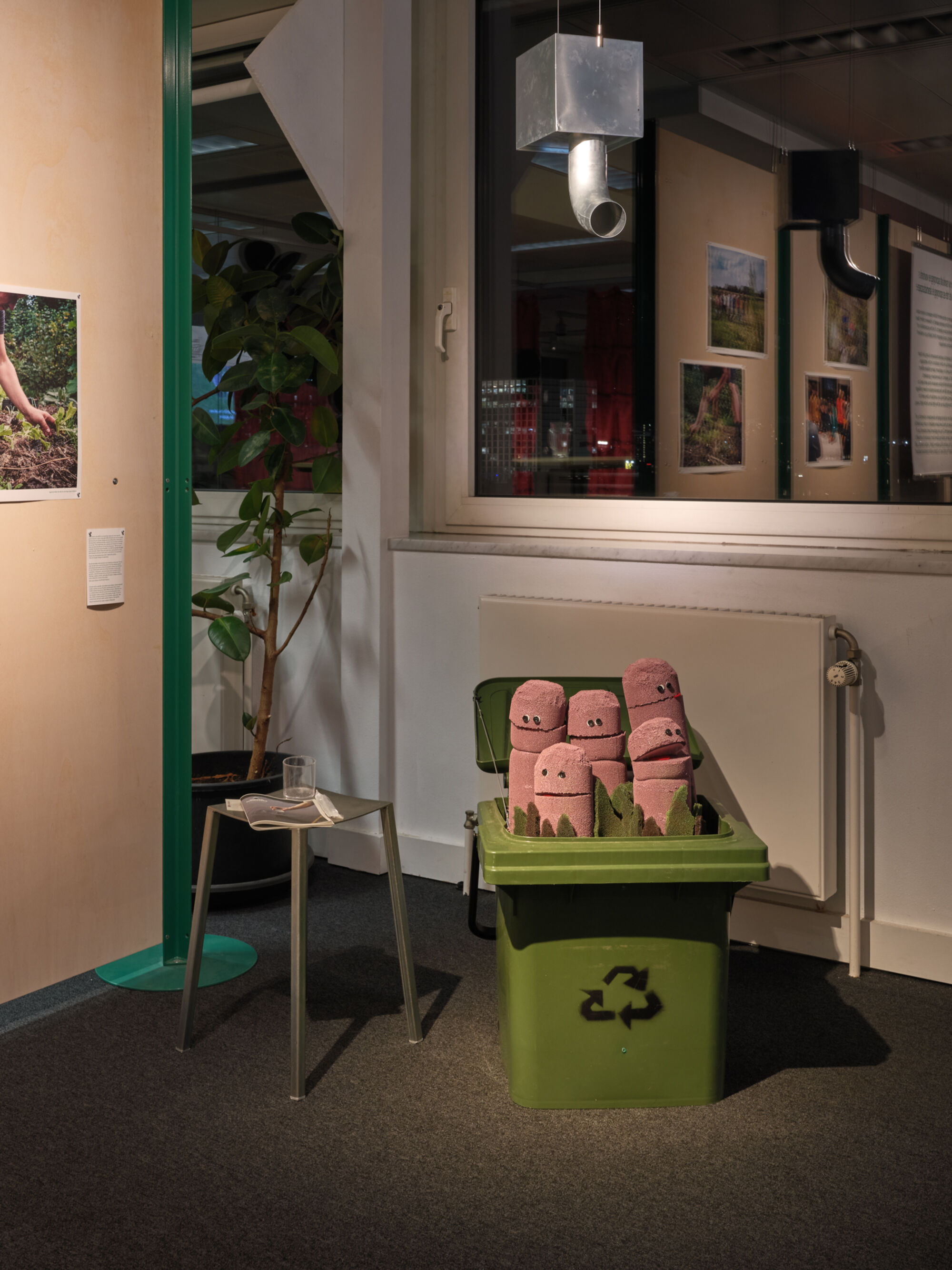
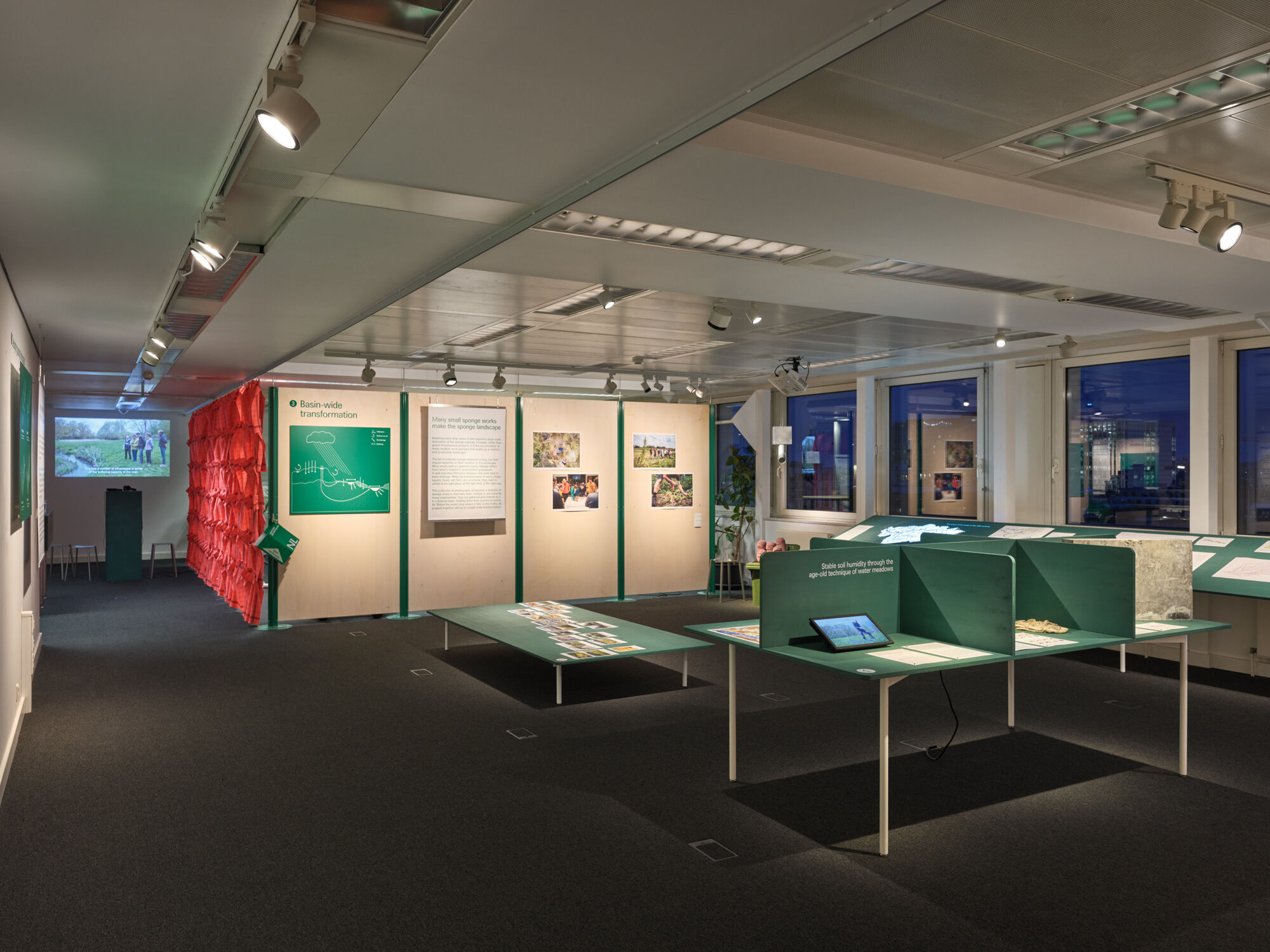
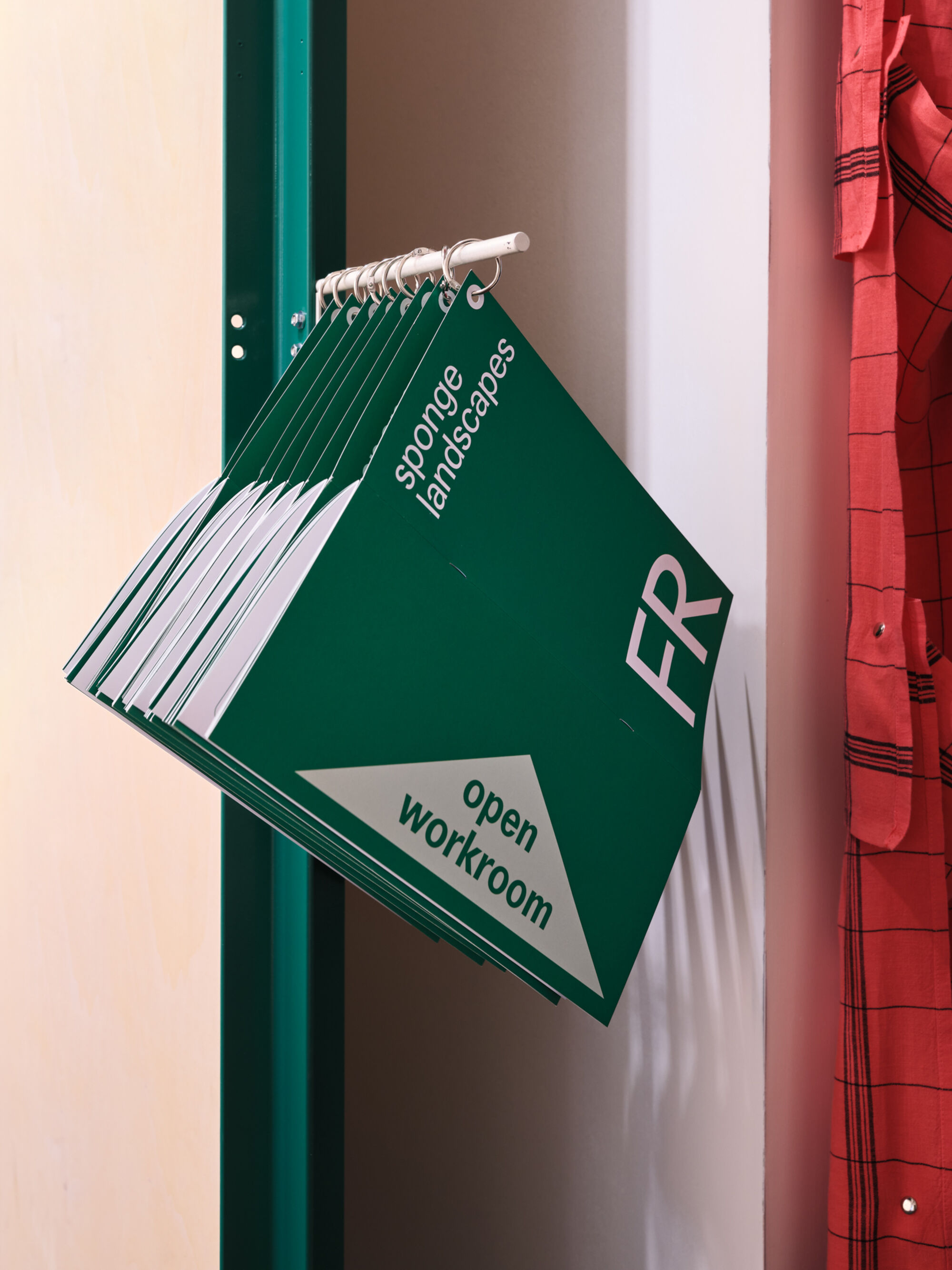
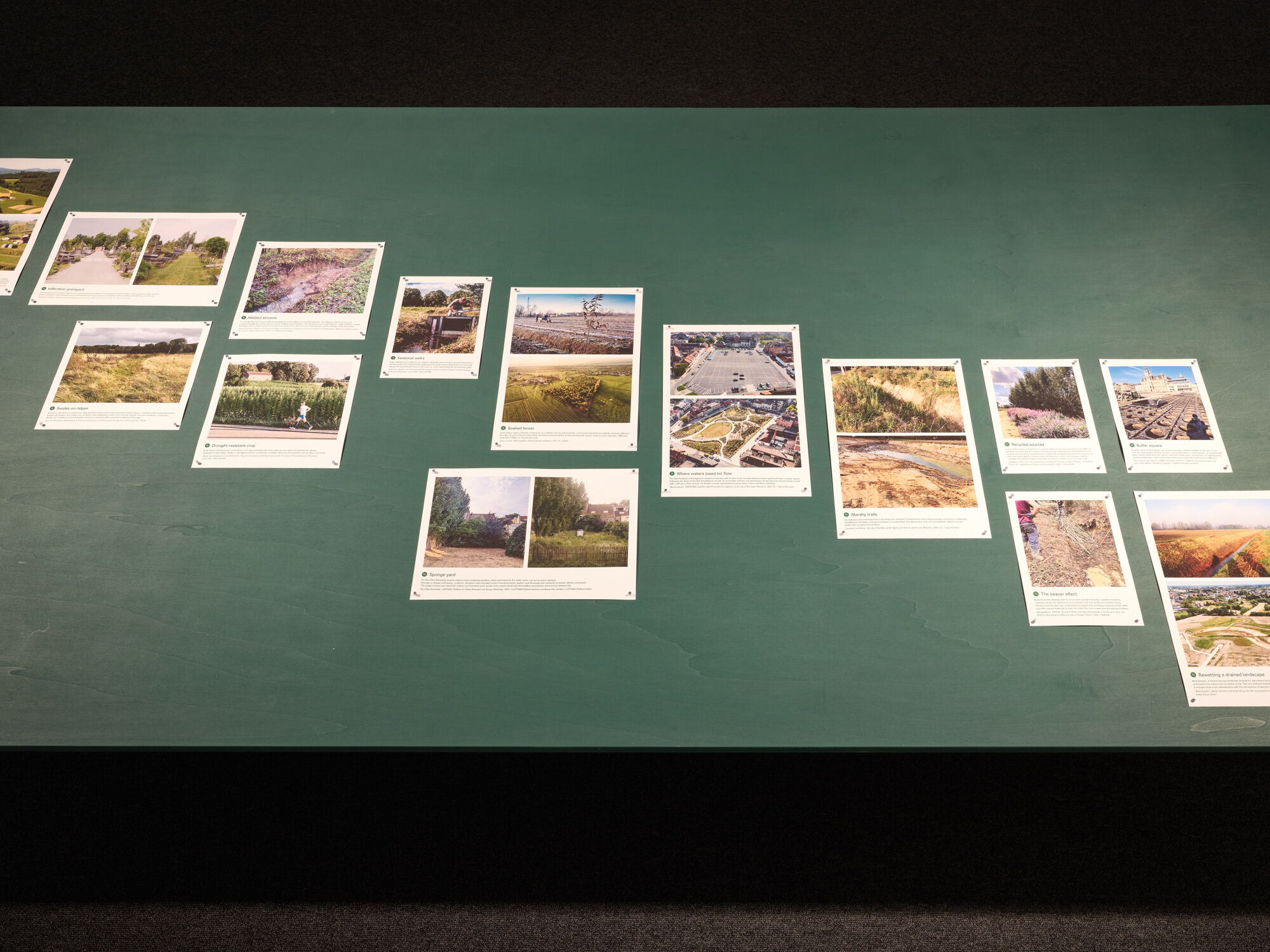
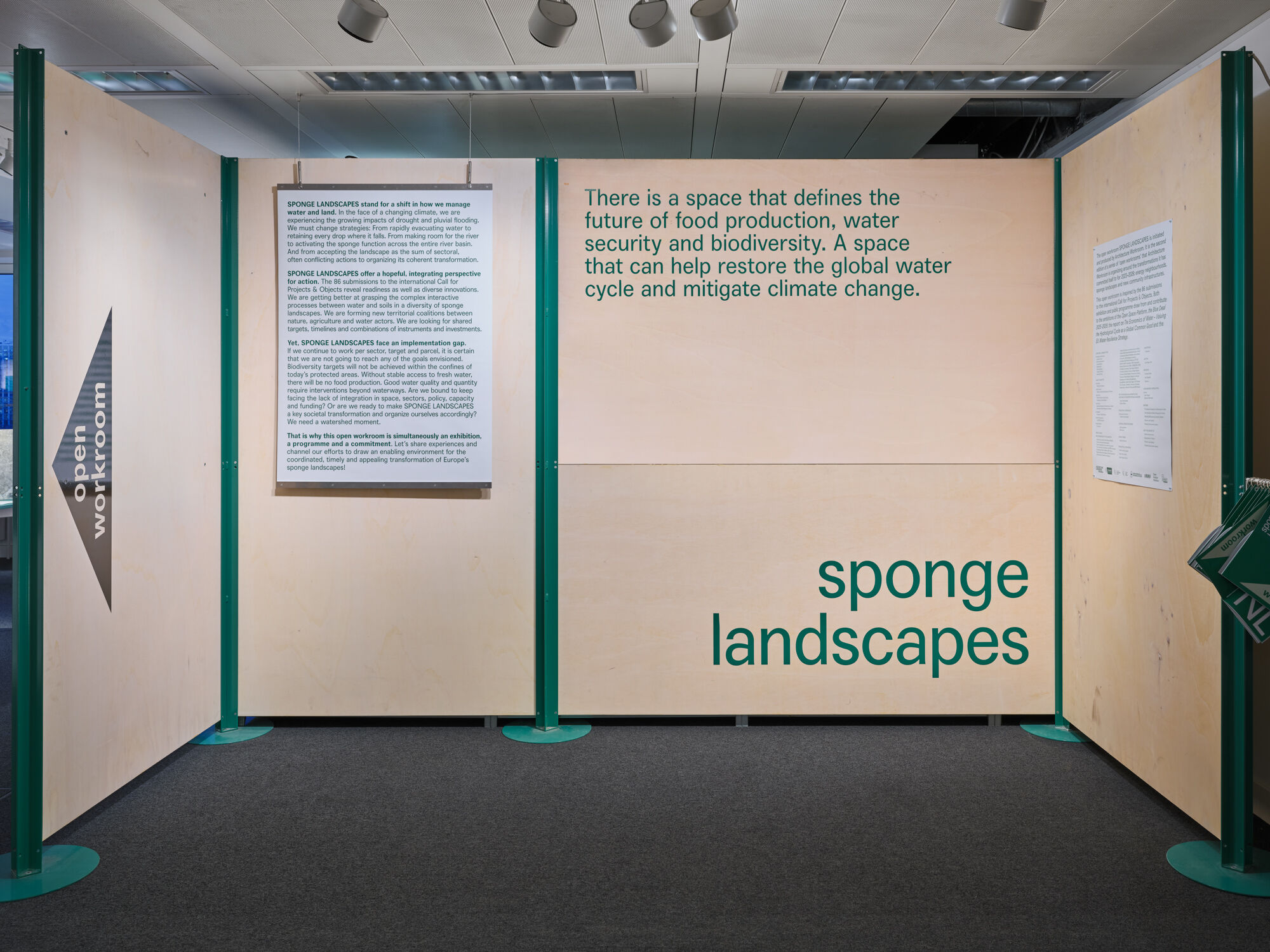
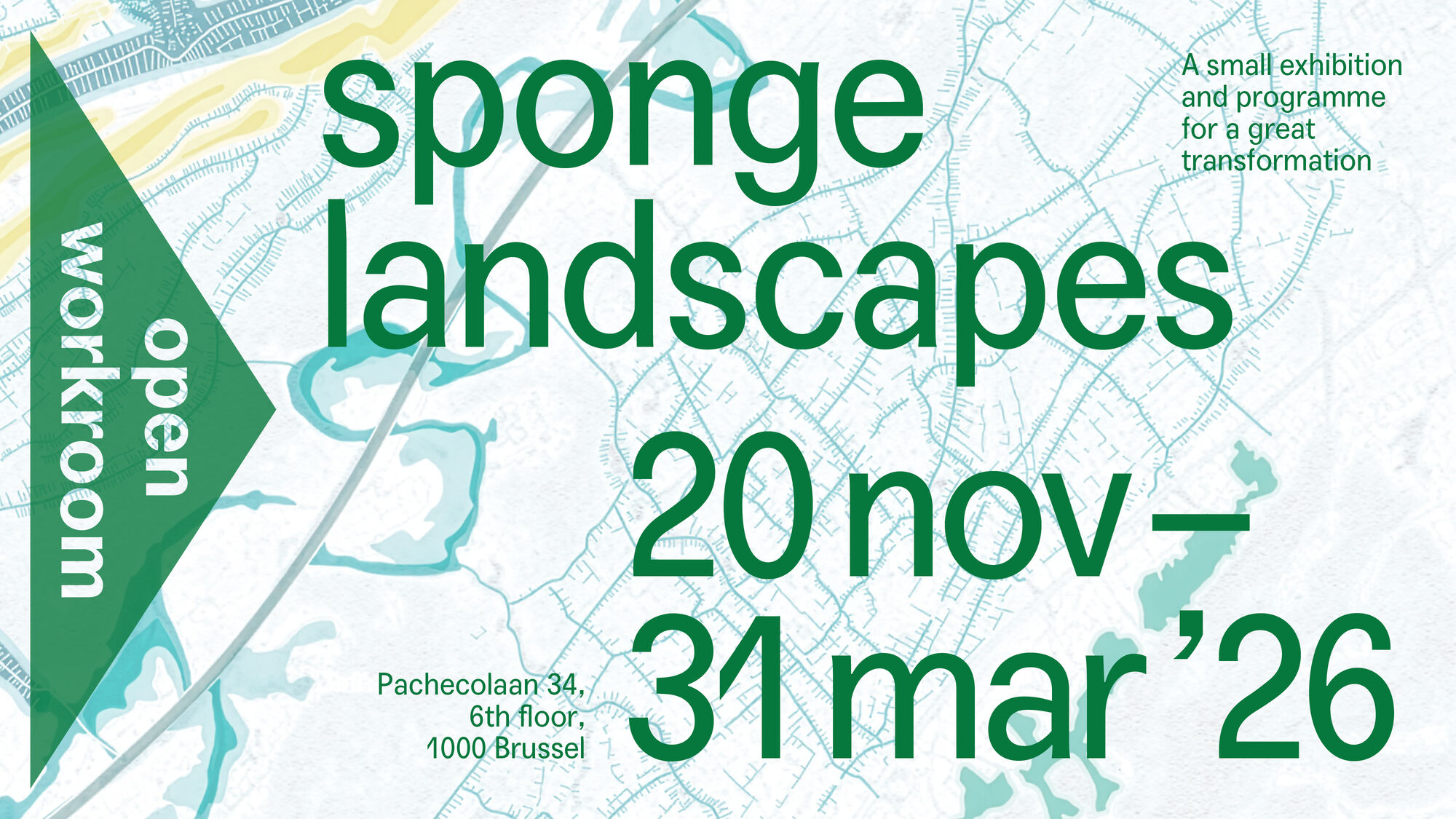
Organising ourselves around the natural sponge function of our territories offers a hopeful, integrated response to extreme periods of drought and rainfall, while investing in biodiversity, healthy and sustainable environments and resilient economies. Yet we are far from seeing sponge landscapes realised as a collectively embraced societal project.
Rather than grand infrastructure projects, sponge landscapes emerge through many modest, local interventions that collectively build resilience. They require action in places where people live, farmers cultivate, cows graze, forests thrive, and businesses operate.
Many actors and sectors – nature organisations, farmers, drinking water companies, municipalities, policymakers – are starting to test new types of measures, operate from a source-to-mouth perspective, build coalitions and innovate in policies. How do we further activate the physical and sectoral interconnections and realise many small-scale measures in a way that makes us collectively more resilient? How do we create a safe and brave space for building just sponge landscape partnerships? Who takes the lead – and is that even necessary – when responsibility lies with many, yet no one at the same time? In short: how do we shape Sponge Landscapes as a collective mission?
Both as an exhibition and as a public programme, the open workroom SPONGE LANDSCAPES make the state of an emerging practice. It builds upon the broad range of materials gathered through our Call for Projects & Objects. Submissions come from all corners of Europe – from around our corner in Brussels to the outskirts of the continent – and were sent in by a great variety of practitioners: regional coordinators, landscape designers, researchers, nature organisations, farmers and farming organisations, volunteers, and policy innovators. In the open workroom, we build upon their experiences by working across five dimensions.
- Connecting Sponge Loops: the sponge landscape activates physical processes
- Designing Sponge Landscapes: tailored strategies for different sponge landscapes
- Basin-wide transformation: many small sponge works make the sponge landscape
- Sponge Coalitions: no basin-wide implementation without a watershed movement
- Re-sponging Europe: a mission-driven approach for sponge landscapes
Five dimensions to explore and develop together. Yes indeed, just as the last edition, the open workroom invites you to roll up your sleeves and join in! The open workroom functions as a setting for a programme of closed workshops and public debates, bringing together anyone with a stake in replenishing the sponge landscape.
PROGRAMME
20th of November - KICK-OFF of the open workroom SPONGE LANDSCAPES
09:30 – 16:30 SPONGE SUMMIT – exploring an implementation practice for Europe's sponge landscapes [invitation-only]
18:00 – 22:00 OPENING NIGHT – Open workroom SPONGE LANDSCAPES [register here]
Tuesday 13th of January 2026 – SPONGE TALK – Designing Sponge Landscapes [register here]
Tuesday 27th of January 2026 – SPONGE TALK – Connecting sponge loops [register here]
Thursday 12th of February 2026 – SPONGE TALK – Sponge coalitions [register here]
Tuesday 17th of March 2026 – CLOSING EVENT – Re-sponging Europe [register here]
PARTNERS
The open workroom SPONGE LANDSCAPES is an initiative of Architecture Workroom Brussels, with the support of the Flemish Government, Department of Culture. The Call for Projects & Objects was launched in partnership with the International Water Management Institute, the Global Commission on the Economics of Water and UHasselt's REWORLDING doctoral network.
Expressing our gratitude to the quality committee for their valuable contributions and sharp eye in de development of the exhibition and the programme: Henk Ovink (Chair of the Global Commission on the Economics of Water, International Water Management Institute), Sarah Garré (Flemish Institute for Agricultural, Fisheries and Food Research), David Verhoestraete (CLUSTER landschap & stedenbouw), Patrick Willems (KU Leuven), Joep Fourneau (Regionaal Landschap Haspengouw & Voeren), Griet Celen (Flemish Land Agency) and Ine Soenen (Province of West-Flanders).
Would you like to become a partner or contribute to the open workroom programme? Contact us: openworkoom [at] architectureworkroom.eu.
